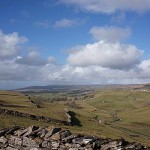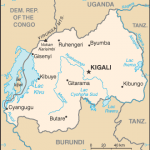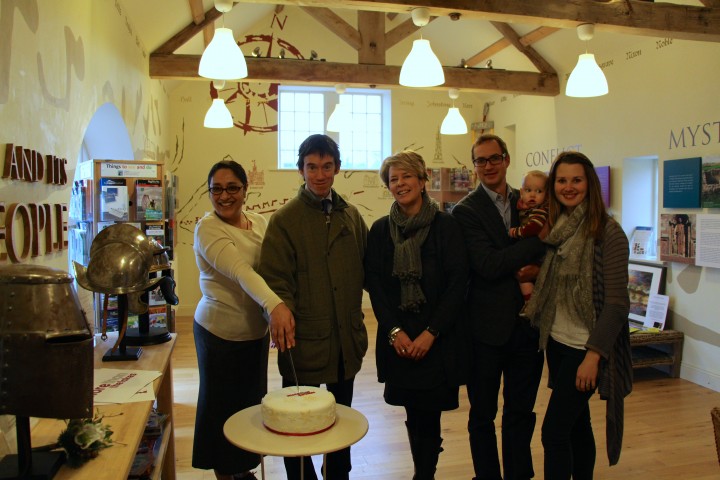It is twenty years now since the Rwandan genocide, and I have been reading two books about it – one by the BBC correspondent Fergal Keane, and one by the American writer, Philip Gourevitch. In the spring of 1994, hundreds of thousands of Rwandans with machetes and clubs murdered a million people, including seventy per cent of the entire Tutsi population, in just six weeks. Fergal Keane insists that no description could be appropriate or adequate for such horror, and that genocide is something inexpressible, and incomprehensible:
In writing about Rwanda, I am conscious that my words will always be unequal to the task…what I encountered was evil in a form that frequently rendered me inarticulate….
But Gourevitch’s book insists on always being articulate. In the hardest situations, his reactions remain uncannily precise. Even while claiming to be baffled, for example, he pinpoints six, exact, separate reactions: ‘revulsion, alarm, sorrow, grief, shame, incomprehension.”
Both of them were writing soon after the events. Essential facts about the genocide were new and disputed. And the heart of the genocide was repetition, which resisted understanding. In every hamlet, in every province, the machete or club rose and fell, again and again – not once or twice, but a million separate times. Writing the forenames and family names of the victims down, with no other detail of age, or place, would fill twenty books. To begin to study the individual deaths would consume a hundred life-times. Which is why one of our deepest instincts can be simply to record names – individual lives, equally specific, equally valuable – never emphasising one for fear of disrespecting another: listing them, as it were on a single stone wall – and steering away from blame or analysis.
The New York Times tried to avoid moral judgements at the time, saying in articles, ‘no-one’s hands are clean’ or ‘it’s not a story of good guys and bad guys.” But Keane and Gourevitch are clear that there were very bad guys. There were many contributing factors – resentments from the colonial period, massacres in the 1960s, a civil war/invasion – but none of them led inevitably to genocide. The genocide was an entirely gratuitous crime, planned by the Hutu government, and executed through the channels of the state. Rwanda was often presented as “a failed state”. But in fact “the genocide was the product of order, authoritarianism, decades of modern political theorizing and indoctrination and one of the most meticulously administered states in history.”
Gourevitch’s book draws on nine months of travel over three years, in dangerous, and very disturbing places. He traces witnesses, who live thousands of miles apart. He carefully records and reconciles contradictory accounts, and patiently reconstructs the most unpleasant incidents.
Gourevitch is able to describe, for example, every hour of a single family’s experience on a single day: the father deciding, against his better judgement, to put on pyjamas and delay an extra night, his attempt to bribe the police with traveller’s checks, the sudden pre-dawn flight from the capital, the confusion in the papyrus reeds by the river bank, the cry of their hidden child, their sister-in-law ripped from their group and hacked to death, the terrible decision to retrace their steps back to their home, despite all that it had cost them to try to leave.
His description of the hotel manager Paul Rusesebagina, who protected his guests, illustrates his eye for incongruous heroism (‘a mild-mannered man, sturdily-built and rather ordinary looking – a bourgeois hotel manager after all – and that is how he seemed to regard himself as well, as an ordinary person, who did nothing extraordinary in refusing to cave in to the insanity that swirled around him.’). But he also gives full form to the small cadre of people who directed the killing, their use of radios, their reliance on poorly armed villagers, and the role France played in backing the genocidal regime.
At a moment when intervention has never seemed so unpopular – and is reserved for disrupting terrorist networks – it is worth remembering that the West might have stopped the Rwandan genocide. If France had backed off, if the UN had agreed to the proposal of its commander General Dallaire for simple acts such as shutting down the radio station, or seizing weapons in town, if the US and the UK had deploying troops to protect displaced people – hundreds of thousands of lives could have been saved, and at relatively little risk or cost to the West.
Fergal Keane concludes after seeing the massacre at Nyarabue:
I do not know what else to say about the bodies because I have already seen too much. I cannot imagine it because my powers of visualisation cannot possibly encompass the magnitude of the terror.
But Gourevitch is never lost for words. He gazes very steadily, and write clearly about this unimagineable horror, charting his every reaction, even to a dead body. This precision and prose – though more challenging, even disturbing – ultimately suggests more about humanity and the West. He has brought all his education, irony, ‘civilisation’, analytical power, and tough-mindedness to the task of unlocking the incomprehensible. And suggests that nothing – even the Rwandan genocide – need be alien to human understanding.















